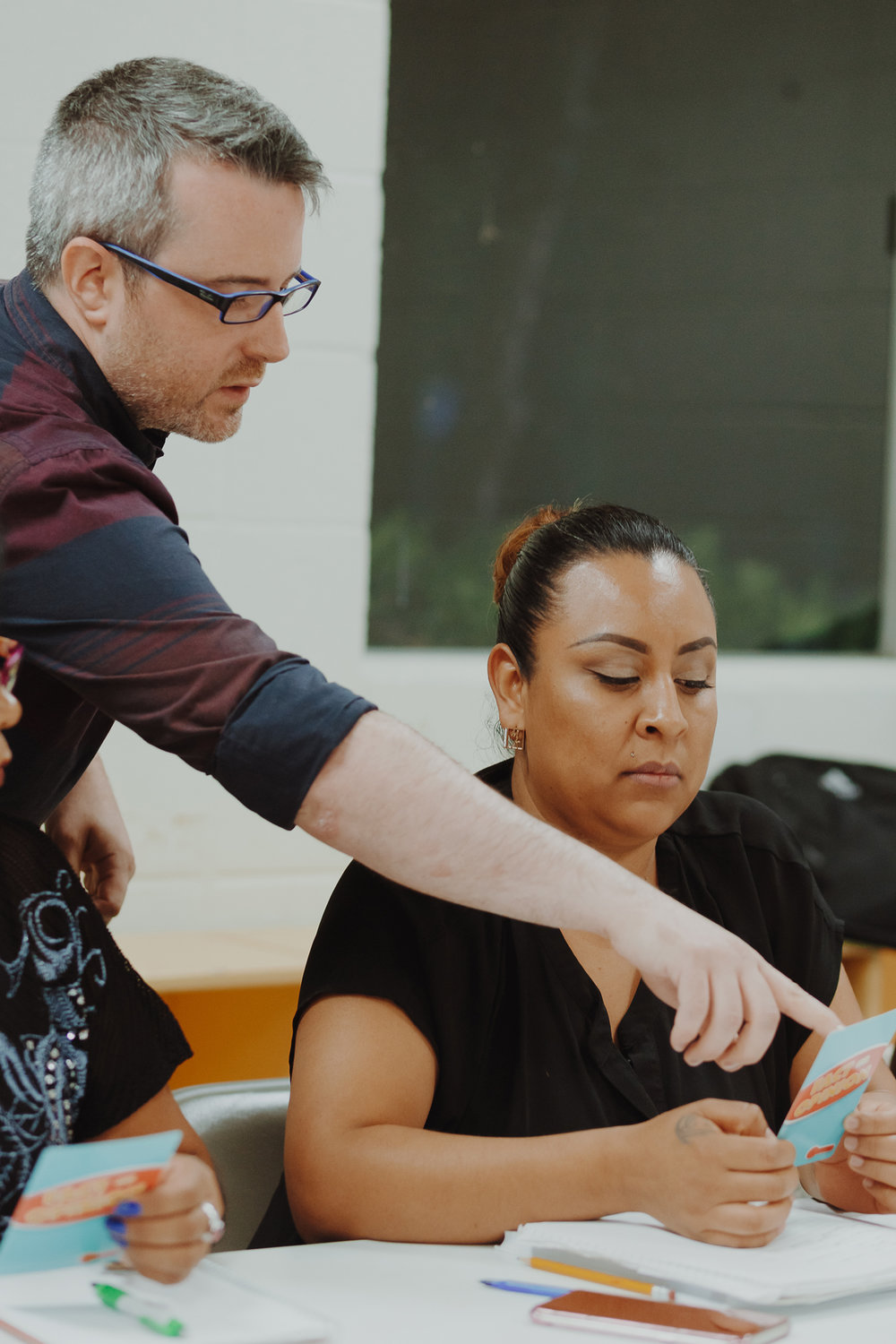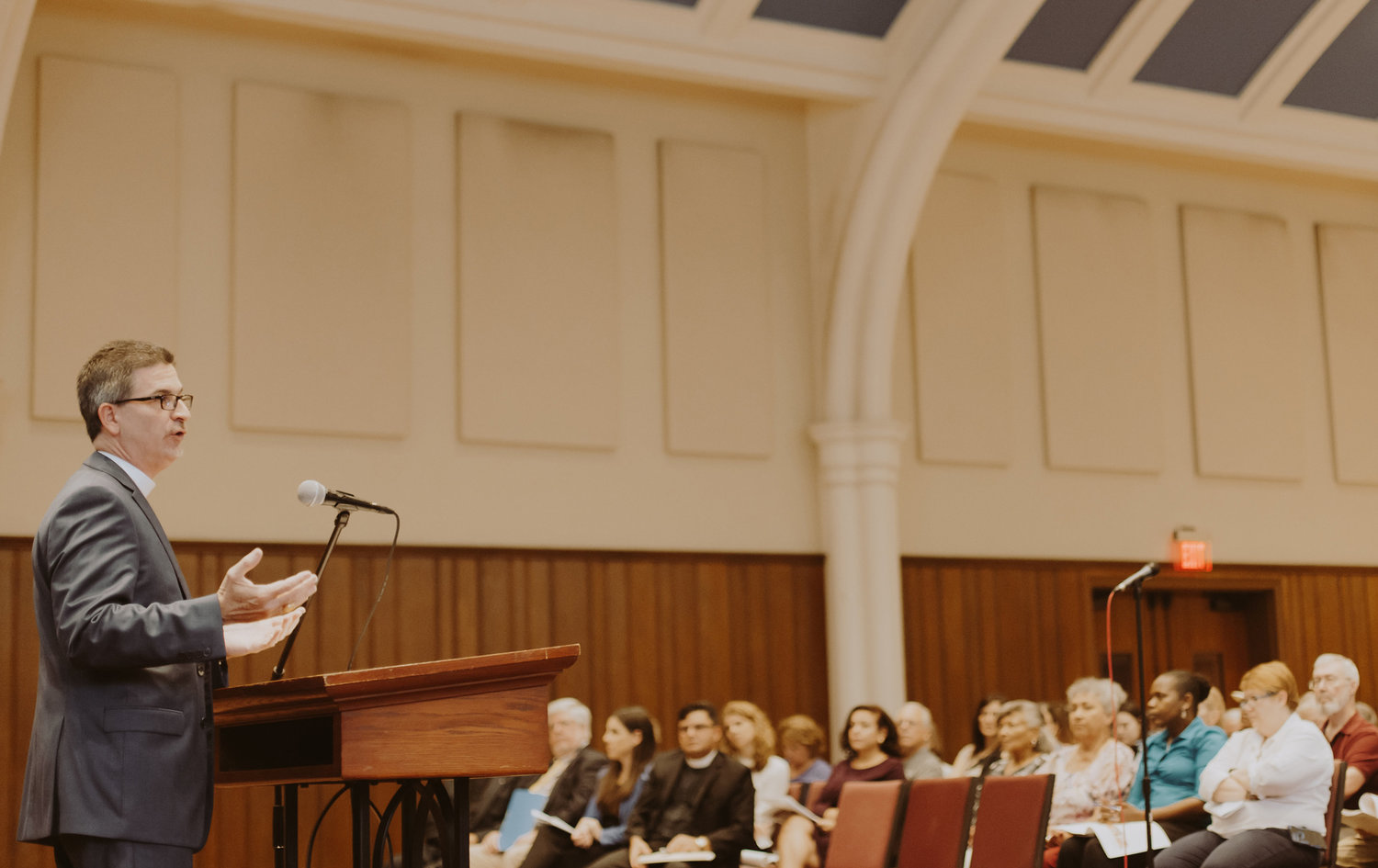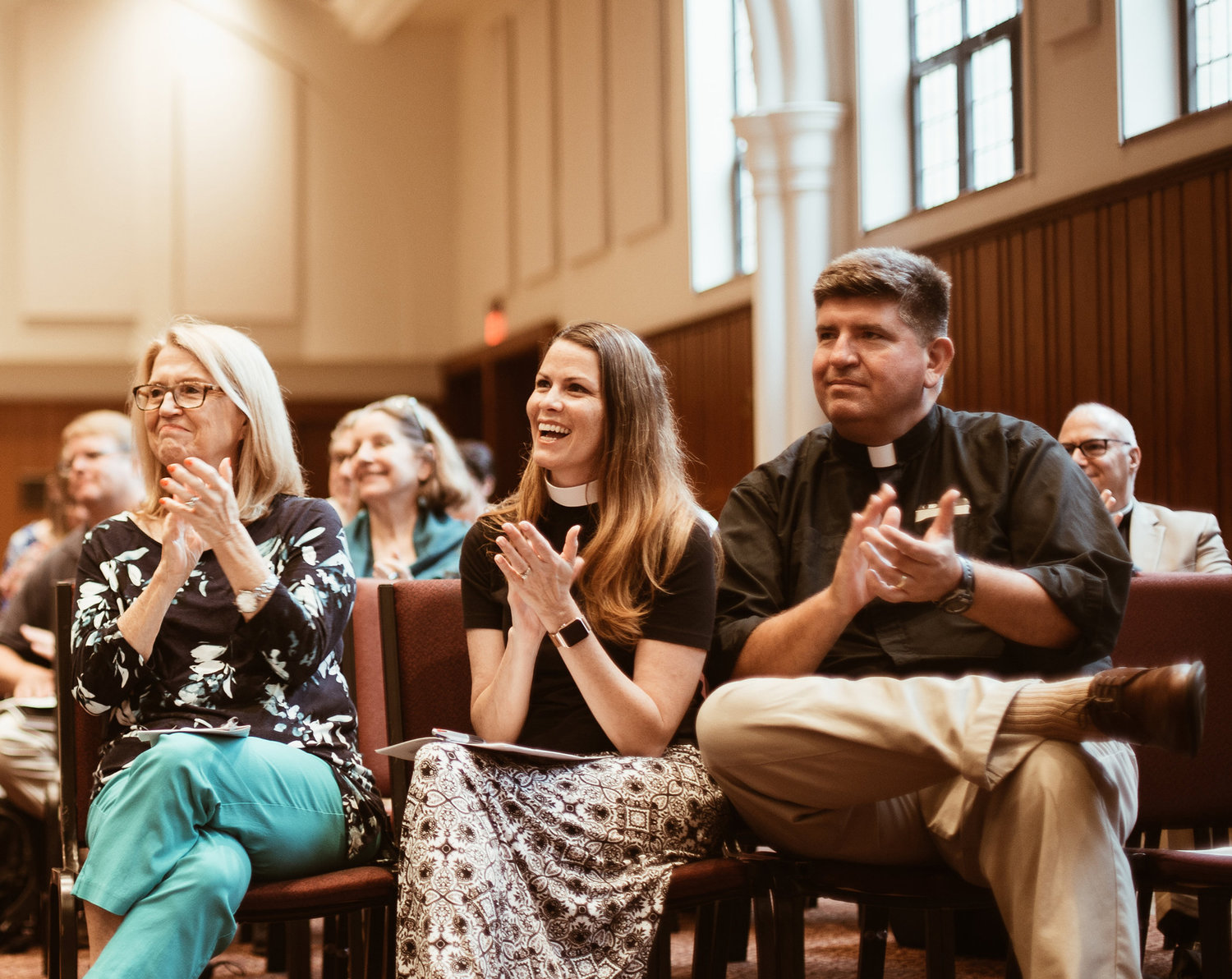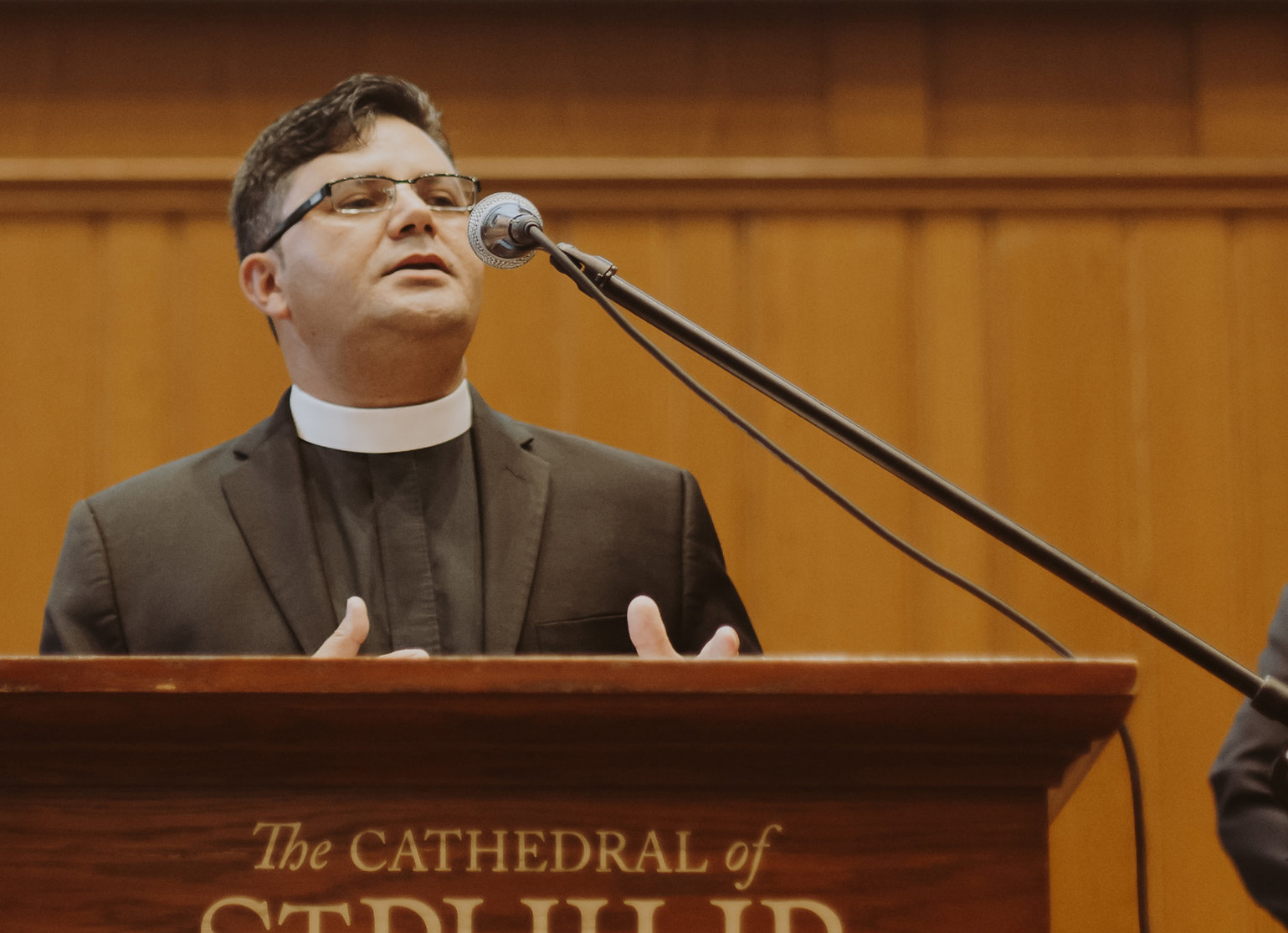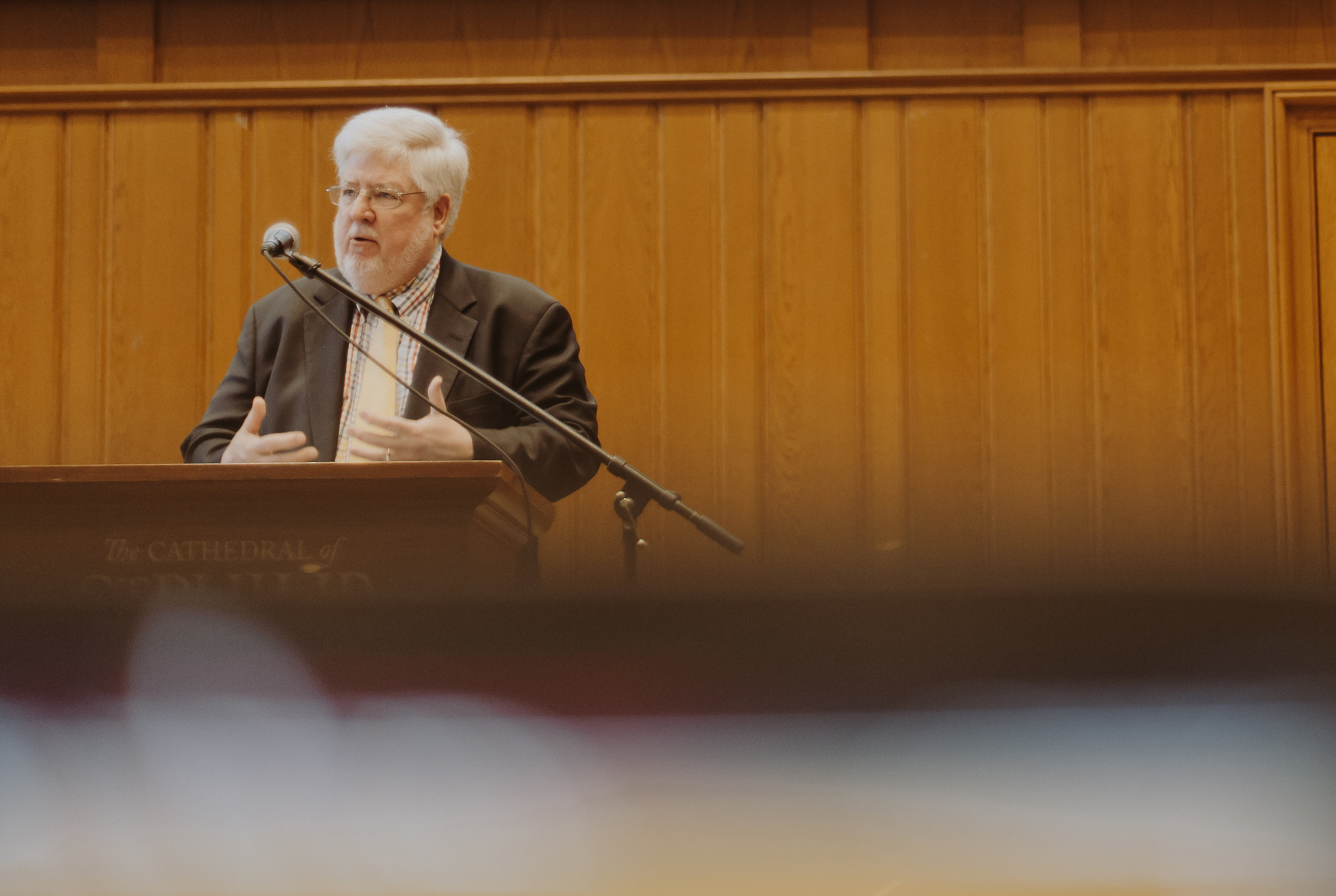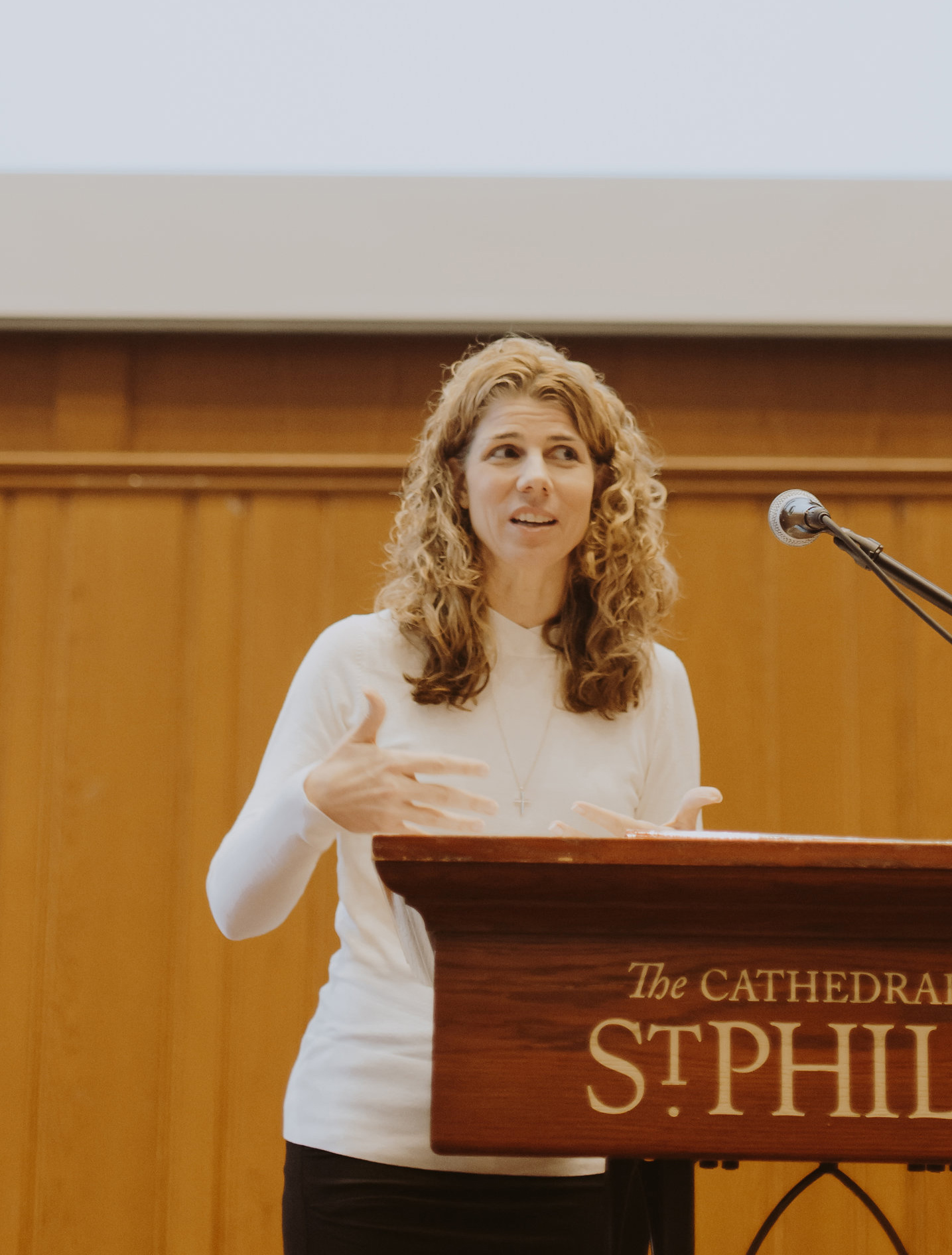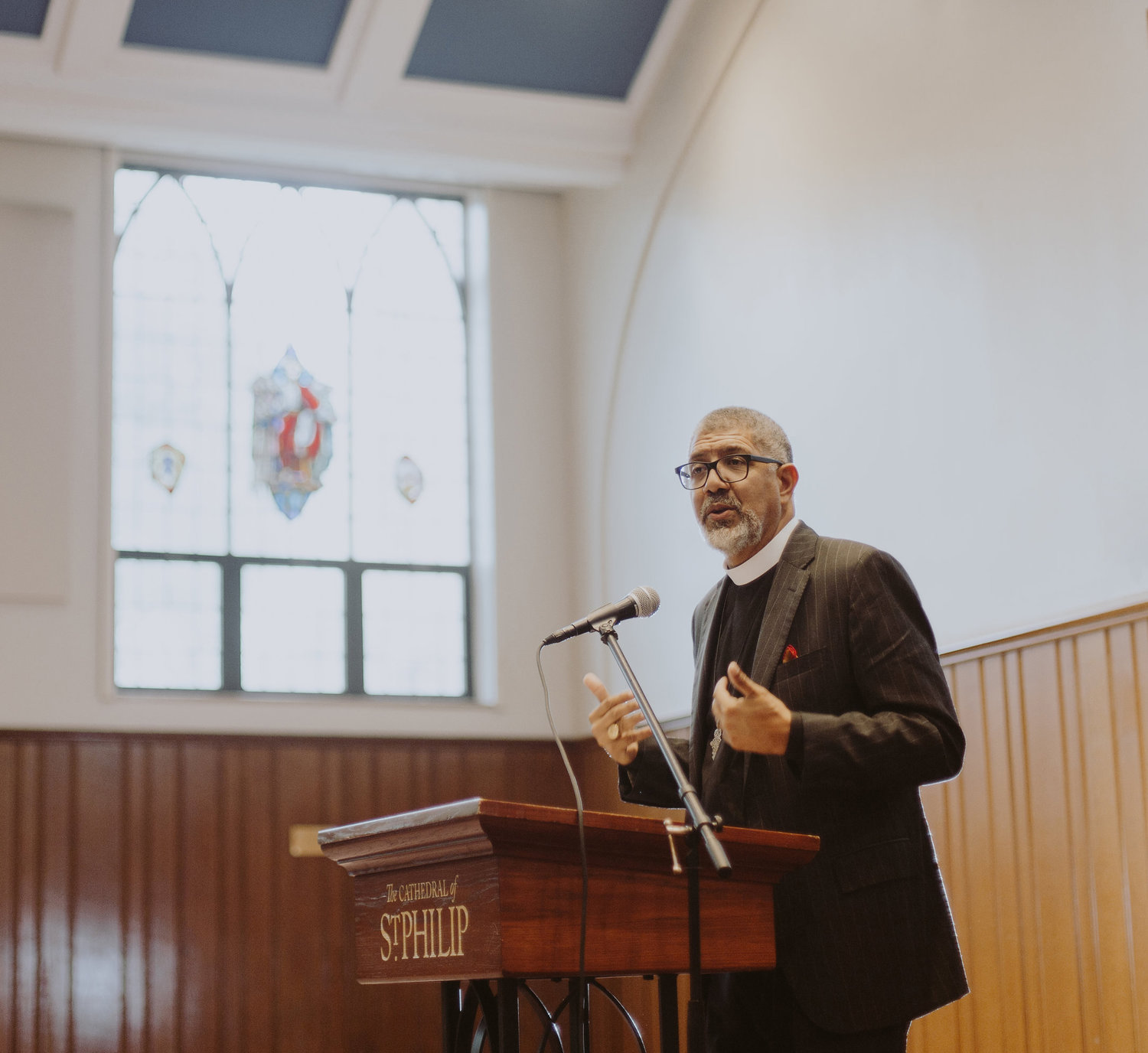To Love Our Neighbor

Immigration. The United States is a country of immigrants and their descendants. Immigrants accounted for 13 percent of the nation's population in 2014 — the highest percentage in 94 years, according to the most recent data available from the U.S. Census Bureau.
That’s 42.4 million immigrants (both with and without legal status) living here. Immigrants and refugees are now at the center of a heated and often polarizing public debate.
No matter the day-to-day politics or legislation proposed to address immigration, we are far from being able to turn away from this issue. Clergy in our communities report that those who are undocumented and those with papers alike are afraid. People are worried about getting pulled over while driving. In some places, people are afraid to attend church. They don’t know where to go and want to know people they can trust.
So how do we as Christians respond in a way that allows us to live into our baptismal promise? Priests and Christian lay leaders came together to discuss the needs of our immigrant neighbors with a group of about 100 people during an event held at the Cathedral of St. Philip in August. Bishops The Rt. Rev. Robert Wright of the Episcopal Diocese of Atlanta and The Rt. Rev. José McLoughlin of the Diocese of Western North Carolina provided theological guidance, and the group shared information and practical ways in which we as Christians can respond.
In the following lightly edited excerpts, we share powerful moments from that day and calls to action.
RW The Rt. Rev. Robert Wright, Bishop of the Episcopal Diocese of Atlanta
CM The Rev. Caroline Magee, Assistant Rector at St. Bede’s Episcopal Church
JM The Rt. Rev. José McLoughlin, Bishop of the Diocese of Western North Carolina
TH The Rev. Thomas Hagood, Pastor at Columbia Presbyterian Church and Executive Director of the New Sanctuary Movement of Atlanta
FS The Rev. Fabio Sotelo, Priest Associate at St. Bede’s Episcopal Church
WHO THIS AFFECTS
RW This is real, this is lowering the ceiling height on people’s dignity, and so that’s where we come in. One of my pet peeves [in] this kind of conversation is we keep using [the word] “issue” — immigration issue. We’re talking about people. We’re talking about men and women, boys and girls, fathers and mothers, grandparents. We’ve got to remember that we’re talking about people and families.
CM Really, wherever you live... if you are a person who eats food, or lives in a structure of some sort, or has received medical care, or has any sort of caregiving work at all, anywhere in your universe, and any kind of service work — then nine chances out of 10, you are in a relationship with people who have come here either as immigrants or refugees. It’s just a matter of the scales being loosened from the eyes so we can see and interact better with our actual community as it is right now.
IS THIS TOO POLITICAL TO TOUCH?
JM We have this nervousness when we start to get the whiff that the church is getting involved in politics. I’ve heard enough in my one year as Bishop saying, “Bishop, you’re walking a very fine line that makes us uncomfortable.” To which my response is, “Look at the Gospels — it’s not that that line has moved. It’s that what’s going on around us is changing, and now is the time to stand up and put what we continually say every Sunday into action.”
CM Politicians have been, unfortunately, very successful at convincing us that somehow if a politician is talking about something, we are not to be talking about that same something as the church. That is false. That is a silencing technique — so we always, always can speak for justice and equality and appropriate treatment of God’s children.
HOW CAN CHANGE BE MADE ON A LARGER SCALE?
JM My opinion is that any legislation, any policy that restricts access to basic services — the things that anyone else would have access to — purely based on someone’s national origin and, for that matter, sexual orientation, gender, etc., is wrong.
And so I do believe that we have a responsibility to advocate. And I believe that we have an obligation to ask our elected officials to conduct debates on this issue in a civil and respectful manner... and to no longer use the immigrant to blame for our social and economic ills or to stereotype an entire population based on fear or prejudice.
WHAT ARE WE CALLED TO DO AS CHRISTIANS?
JM I believe we put our faith into action when we demonstrate radical hospitality and solidarity for all people, including the immigrant and the refugee... I believe that the way that we treat immigrants, the way we respond, is an issue of faith. I believe that the laws and the policies that we use in this issue must uphold human dignity of every person — each who is formed in the image of God, no exceptions. As I’ve often said when I visit churches on Sunday — when they say “all are welcome,” I’ve challenged them all to show me where the asterisk is on that sign, and I’ve yet to find it.
TH My name is Adam. My name is Eve. We are immigrants. My name is Noah. I am an immigrant. My name is Abraham. My name is Sarah. We are immigrants. My name is Lot. I am an immigrant. My name is Jacob. I am an immigrant. My name is Joseph. I am an immigrant. My name is Moses. I am an immigrant. My name is Miriam. I am an immigrant. My name is Joshua. I am an immigrant. My name is Naomi. I am an immigrant. My name is Daniel. I am an immigrant. My name is Joseph. My name is Mary. We are immigrants. My name is Jesus. I am an immigrant.
I shared those words with my congregation, Columbia Presbyterian Church, earlier this year, and I asked them, what do you make of that? How do we as a nation, as a church, respond to the plight of immigrants, to the aliens in our midst? How do we respond? Do we shut the door to our immigrants? Do we support the building of walls and mass deportations? Or do we welcome the stranger in our midst as God commands us? Or do we put 11 million immigrants into a single box, label them as criminals, rapists, terrorists, and send them back to wherever they came from? Or do we look into the eyes of each — into the individual faces of mothers, of fathers, of children and listen to their stories — the stories of fear, the stories of survival, the stories of hope, and then walk beside them in their journey?
Red cards proclaim people’s rights and let law enforcement officers know that people understand that they do not have to submit to illegal searches. They are meant to be posted on front doors and kept inside cars.
WHAT CAN WE DO?
CM Each of us has an experience somewhere of feeling like a stranger in a strange land or feeling like you’re not getting any support trying to build your life or feeling ostracized. The more we can connect to stories that immigrants and refugees share... we can share some of those feelings and understandings.
FS There are many ways we can help immigrants. We need to discover those ways, but the way we cannot take is the one of remaining paralyzed, afraid, “careful,” and decide to do nothing.
Adapted from a list courtesy of The Rev. Fabio Sotelo
1. SHARE STORIES || It helps us to change minds and hearts. When we hear from immigrants — who they are, where they are from, why they are here, what they do — we can learn the challenges that they face; we can learn their needs.
We can examine bigger questions. How are we responding to the immigration crisis in the world today? Is deporting people the only way to solve this broken system? What is happening in their countries of origin that force them to leave? To what political and social reality is this system sending them back to?
2. CLERGY, PREACH ON THE ISSUE || Our tendency is not to offend people and not bring politics to the pulpit. Is that what Jesus is inviting us to do? How are we exercising our prophetic role in our churches?
3. MAKE OURSELVES AVAILABLE TO IMMIGRANTS || When we are available, people can call us and tell us firsthand what is going on, who and how people are detained. If I am able, I go to visit and talk to the family of detainees to listen and ask the question, how can we help them.
4. CONNECT WITH OTHERS || There are churches and organizations that are working on the issue: the Latin American Association, immigration law firms, and the Georgia Latino Alliance for Human Rights. This is a huge job, and we need others.
5. OFFER WORKSHOPS ON IMMIGRATION || Invite leaders and immigration attorneys to talk to our communities and answer questions. Get resources from those organizations.
6. PLAN FOR AN EMERGENCY || Help people to develop a plan if they are picked up by the police, no matter their status. Many don’t know what to do. They are in a panic. Having a plan can help them be prepared. Who will be contacted? Can they get an attorney? Who will care for their family? How will bills get paid?
7. VISIT PEOPLE WHO ARE DETAINED || People are being held in El Refugio, in Stewart Detention Center. They can be held for many years. Visit them. Collect items for them: jeans, tennis shoes, carry-on bags. If people are deported, they start over with nothing. El Refugio is a resource that can help. It is a volunteer-driven ministry of hospitality and visitation serving immigrants detained at Stewart Detention Center, their families, and friends. http://elrefugiostewart.org
8. ASK U.S. CITIZENS TO WRITE LETTERS IN SUPPORT OF DETAINEES || I ask the family to provide enough information so the letter has some concrete content: Do they pay taxes? Do they have a clean record? How long have they been in the country? What kind of work does that person do? And who is here with him/her in the country? Show their contribution to the economy of this country and the hardship that they and their family will face if they get deported.
9. ESTABLISH ENGLISH AS A SECOND LANGUAGE (ESL) PROGRAMS || Hosting a program helps develop relationships. Teachers get to know people, and immigrants can develop English skills. If they can have a conversation with the police, for example, perhaps interactions may go more smoothly.
10. FUNDRAISE || Money raised through collection or otherwise can be used to support detainees and their families and/or to support an organization that is already doing the work. Many of the people deported are breadwinners. Funds can go to help families cover the expense of food, gasoline, phone calls, and food for the people in the detention center. If people can afford a lawyer and bond can be negotiated, the minimum bond is $1,500. Some are signing papers agreeing to be deported because they cannot afford these things.

